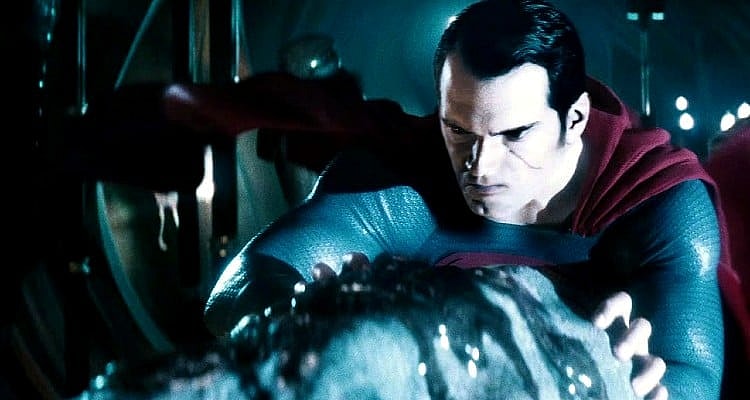New Report Indicts Bots And Zack Snyder For Manipulating The Campaign To Get His Justice League Cut Released, Snyder And Ray Fisher Respond

The fan-led campaign that led to the release of the Snyder Cut is coming under renewed fire from a report that accuses the movement of being online astroturf to a great degree.

This charge comes from two WarnerMedia reports obtained by Rolling Stone for an exclusive that tells a short history of the Snyder Cut movement – which they call toxic right out of the gate – and shares reputed findings of its authenticity.
“According to two reports commissioned by WarnerMedia and recently obtained by Rolling Stone, at least 13 percent of the accounts that took part in the conversation about the Snyder Cut were deemed fake, well above the three to five percent that cyber experts say they typically see on any trending topic,” said the article.
Additionally, two firms they contacted, they say, “that track the authenticity of social media campaigns, Q5id and Graphika, also spotted inauthentic activity coming from the SnyderVerse community.”

They add “another firm, Alethea Group, found that the forsnydercut.com domain…was, at least at one point, registered to a person who also ran a now-defunct ad agency which promoted its ability to bring ‘cheap, instant Avatar traffic to your website.’”
Forsnydercut.com “claims to have made the #ReleaseTheSnyderCut hashtag go viral in May of 2018, and became the landing hub for efforts to bring Snyder back to the helm of the DC universe.”
While the owner is unclear, it was found the domain belonged to Xavier Lannes, a digital marketing consultant identified as the CEO of digital ad firm called MyAdGency. Their site, which is no longer active, promised “cheap, instant Avatar traffic to your website” using “the latest technology concentrated in the palm of your customer’s hands.”

Snyder denies hiring Lannes but, of the 20 people involved with both versions of Justice League that RS talked to, it’s claimed most of them believe Snyder “was working to manipulate the ongoing campaign.” A source added, “Zack was like a Lex Luthor wreaking havoc.”
Another source told RS “the director hired a digital marketing firm to juice fan engagement in 2016, when ‘Batman V Superman’ was savaged by critics,” laying “the groundwork for the SnyderVerse siege…well before 2020.”
He countered Warner Bros. was pulling strings, “trying to leverage my fan base to bolster subscribers to their new streaming service.” Zack Snyder’s Justice League was released to that streaming service, HBO Max, in March of 2021 and according to some data it didn’t do the numbers many thought it would.

Critics of the #ReleaseTheSnyderCut movement had reason to expect this when they looked at trending patterns of the hashtag. In the beginning, it boasted over a million tweets in a single day but soon dropped off as new SnyderVerse tags took their place.
“Just look at the drop: [That hashtag was] trending at a million tweets a day for when they wanted to release the Snyder Cut. And it dropped down to 40,000 within days,” said an unnamed digital marketing executive. “You don’t see a drop like that organically.”
The marketing executive called “a classic example of ‘weaponizing a movement.’” The main report from a cybersecurity firm commissioned by Warner indicates this is what happened across social media platforms.

Responding to threats made against WarnerMedia executives, the firm’s report dated April 2021 and titled “SnyderCut Social Media Presence” claimed, “After researching online conversations about the Snyder Cut of the Justice League‘s release, specifically the hashtags ‘ReleaseTheSnyderCut’ and ‘RestoreTheSnyderVerse’ on Facebook, Twitter and Instagram, [the analysts] detected an increase in negative activity created by both real and fake authors.”
It continued, “One identified community was made up of real and fake authors that spread negative content about WarnerMedia for not restoring the ‘SnyderVerse.’” Three leaders each in the content wave were ID’ed on Facebook, Twitter, and Instagram that “received the highest amount of engagement and have many followers, which gives them the ability to influence public opinion.”
Also, they found communities on these platforms posting “harmful content” against Warner executives Ann Sarnoff, Toby Emmerich, Walter Hamada, and producers Geoff Johns and Jon Berg.

It’s likewise said Snyder threatened to “destroy” Johns and Berg on social media because he didn’t want their names attached to his cut of the film. They were eventually called out for “enabling” Joss Whedon and unprofessional behavior during reshoots by Cyborg actor Ray Fisher.
Unsurprisingly, Snyder and Fisher are hitting back at the report with the director saying to Rolling Stone, “If this is indeed a balanced article, I hope that all the good work the fandom has done is being represented.”
Efforts were made in the push for The Snyder Cut, during 2019’s San Diego Comic Con, to raise money for suicide prevention and awareness. This was in honor of Snyder’s daughter who took her own life during production of Jusice League, forcing him to step away.

RELATED: Rumor: The Flash Post-Credit Scene Revives Ben Affleck’s Batman And Kicks Off Justice League 2
“I am grateful to both the fan community and Warner Bros. for allowing this to happen. To dwell on negativity and rumors serves no one,” said Snyder. “As an artist it was fulfilling to be able to finally see my vision realized after such a difficult time in my life and for it to be so well received.”
The outlet said Fisher declined to comment, which he denied in a social media reaction to their piece. “Neither myself, nor anyone on my team, EVER ‘declined to comment to Rolling Stone.’” he tweeted.
“Furthermore, this type of rumor-mill reporting is offensive, dangerous, and willfully evasive of fact,” sharing a screenshot from the article and urging them to amend it.
.@RollingStone and @TatianaSiegel27 need to amend this article immediately!
Neither myself, nor anyone on my team, EVER “declined to comment to Rolling Stone.”
Furthermore, this type of rumor-mill reporting is offensive, dangerous, and willfully evasive of fact.
A>E pic.twitter.com/HtOt4D6A9b
— Ray Fisher (@ray8fisher) July 19, 2022
Rolling Stone editor-in-chief Noah Shachtman responded with the screenshot of an email showing they had reached out to Fisher’s team. “Here is one of several emails @RollingStone sent your reps,” wrote Shachtman.
Here is one of several emails @RollingStone sent your reps. https://t.co/VcW1Td2c0E pic.twitter.com/oYhUVN04uV
— Noah Shachtman (@NoahShachtman) July 19, 2022
He replied with his own screen grab of the email to counter that the author Tatiana Siegel changed the deadline for comment from 5pm to 6pm. “Nice try, but you cropped out the part of those emails where [Tatiana Siegel] switched deadlines on my team.”
Nice try, but you cropped out the part of those emails where @TatianaSiegel27 switched deadlines on my team
Trying to spin half-furnished emails into a “gotcha” will get you nowhere @NoahShachtman @RollingStone please rein in your employees. This is embarrassing and amateurish https://t.co/sJvlah7DsE pic.twitter.com/0Xbhq6vSF4
— Ray Fisher (@ray8fisher) July 19, 2022
The conversation ended there.
What are your thoughts on the report accusing the Snyder Cut movement of manipulating the campaign to get the long-clamoured film released? Leave a comment down below or on social media!
